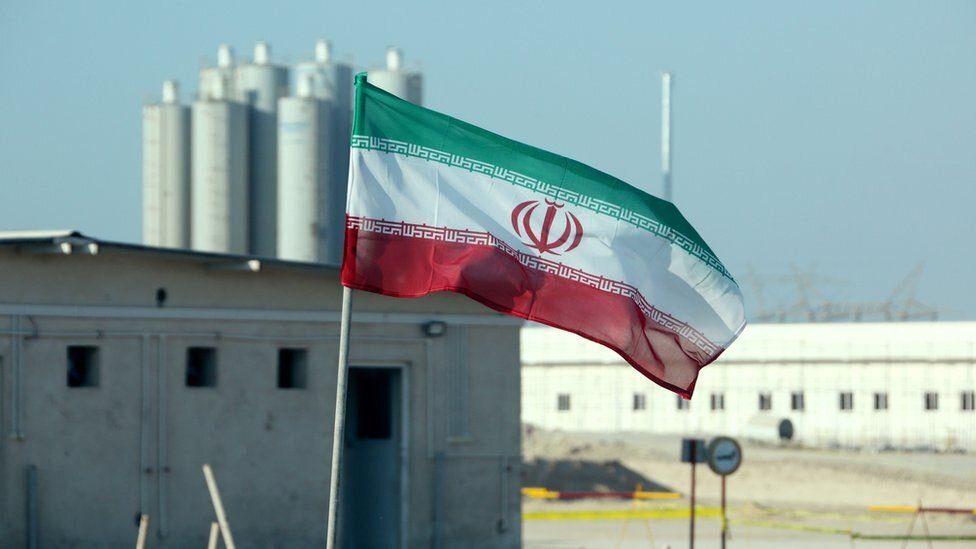Qatari authorities have yet to comment on the matter, however Doha recently held two days of talks in a bid to revive stalled negotiations.
Iran has delivered its response to the latest draft put forth by the European Union regarding the revival of the landmark 2015 nuclear deal, calling on Washington to exercise more flexibility.
A final agreement to resume the implementation of the 2015 nuclear deal, formally known as the Joint Comprehensive Plan of Action (JCPOA), is inches away, should the US side “accept” a number of requirements from the Iranian side, according to the state run Islamic Republic News Agency.
Iran’s foreign minister said on Monday that Tehran has demonstrated enough flexibility and the “US knows this” and that it is now Washington’s turn to show flexibility, reports said.
According to the information gathered by the news agency from the Iranian negotiating team, an outstanding disagreement remains over three issues that need to be addressed – two of which “have been orally accepted” by Washington, however Tehran insists on including them in the text.
An adviser to the negotiating team told Al Jazeera, that the issues can be easily solved by the west. “We are closer to an agreement, but the work is not finished until the remaining problems are resolved.”
Mohammad Marandi, an advisor to the Iranian negotiating team in Vienna, told Al-Monitor that the Islamic Republic shared several concerns with the EU in its submitted response on Monday, however the sticking points are not difficult to resolve given that over the past eight months “the Iranians were able to get many concessions with respect to several issues, [including] sanctions, guarantees, verification and also preserving the nuclear advances.”
“I can’t say that there will be a deal, but we’re closer than we’ve been before,” Marandi said.
The Islamic Republic has made apparent its lack of faith in American officials over the last few months
This view was further exacerbated when the US unilaterally abandoned the JCPOA in May 2018 under the Trump administration’s “maximum pressure” campaign on Tehran. In addition, Washington reimposed sanctions on the Islamic Republic.
Marandi said late June “we do not take US media statements as serious,” adding that “the Americans must provide the guarantees that Iran wants to make sure that they do not stab us in the back like in the past.”
Iran’s Supreme National Security Council convened on Monday evening to discuss the proposal text in detail, a meeting which gave rise to a decision on Tehran’s stance regarding the EU’s proposed draft as well as its response.
EU’s “final text” was submitted to the parliament on 8 August. The Biden administration has declared it is ready to “quickly conclude a deal” based on the EU’s proposed text, according to reports.
However, earlier on Monday, the State Department spokesperson Ned Price refused to disclose whether Washington had accepted the final draft and noted the administration would “communicate its views privately” to EU foreign policy chief Josep Borrell.
Price also called on Iran to drop “unacceptable demands” that are outside the nuclear accord. If Tehran “cannot or will not accept a mutual return to full implementation of the JCPOA, we’re equally prepared to continue the vigorous enforcement of our sanctions and the imposition of other diplomatic pressure,” Price said.
The Islamic Republic has maintained that it does not consider Borrell’s proposal to be non-negotiable. The Iranian Foreign Minister Hossein Amirabdollahian told reporters that the US needed to exhibit flexibility on a number of sticking points.
“If these three issues are resolved, we can reach an agreement. But failure to revive the pact would not be the end of the world,” he said.
“Like Washington, we have our own Plan B if the talks fail,” he added.
Outstanding issues
Amirabdollahian, however, did not specify what the three outstanding issues are.
Tehran has always maintained the position that any agreement to revive the JCPOA should result in the entire removal of the sanctions in a verifiable order. It had also previously required official guarantees by Washington to ensure that no other US administration would abandon the nuclear accord.
Another outstanding issue that delayed the finalisation on an agreement was Iran’s alleged demand to delist its paramilitary arm, the Islamic Revolutionary Guards (IRGC), from the infamous US State Department terrorist list.
“Regarding the IRGC, what is important is to acknowledge the standing and the central role of the IRGC in our security and defence. [Negotiators] relayed some messages to the US,” said Amir-Abdollahian in late March, as quoted by Iranian media outlets.
The significance of this request, for Iran, lies in IRGC’s tie to certain economic entities within the Islamic Republic. A failure to delist the Guards, will impact the Iranian economy, former Iranian Foreign Minister Sayyid Kamal Kharrazi said at the Doha Forum 2022.
Since then, Iran has instead requested the lifting of sanctions on Khatam-al Anbiya Construction Headquarters and a few other entities, according to a correspondent in Tehran.
A source on Twitter asked an EU official about Iran’s response to EU’s final text, to which the official replied: “Only on sanctions lifting issues.”
The source further asked wether Iran was “okay” with everything else, to which she received a response that read: “One can carefully interpret it this way. But it seems they ask tricky things on sanctions”.
